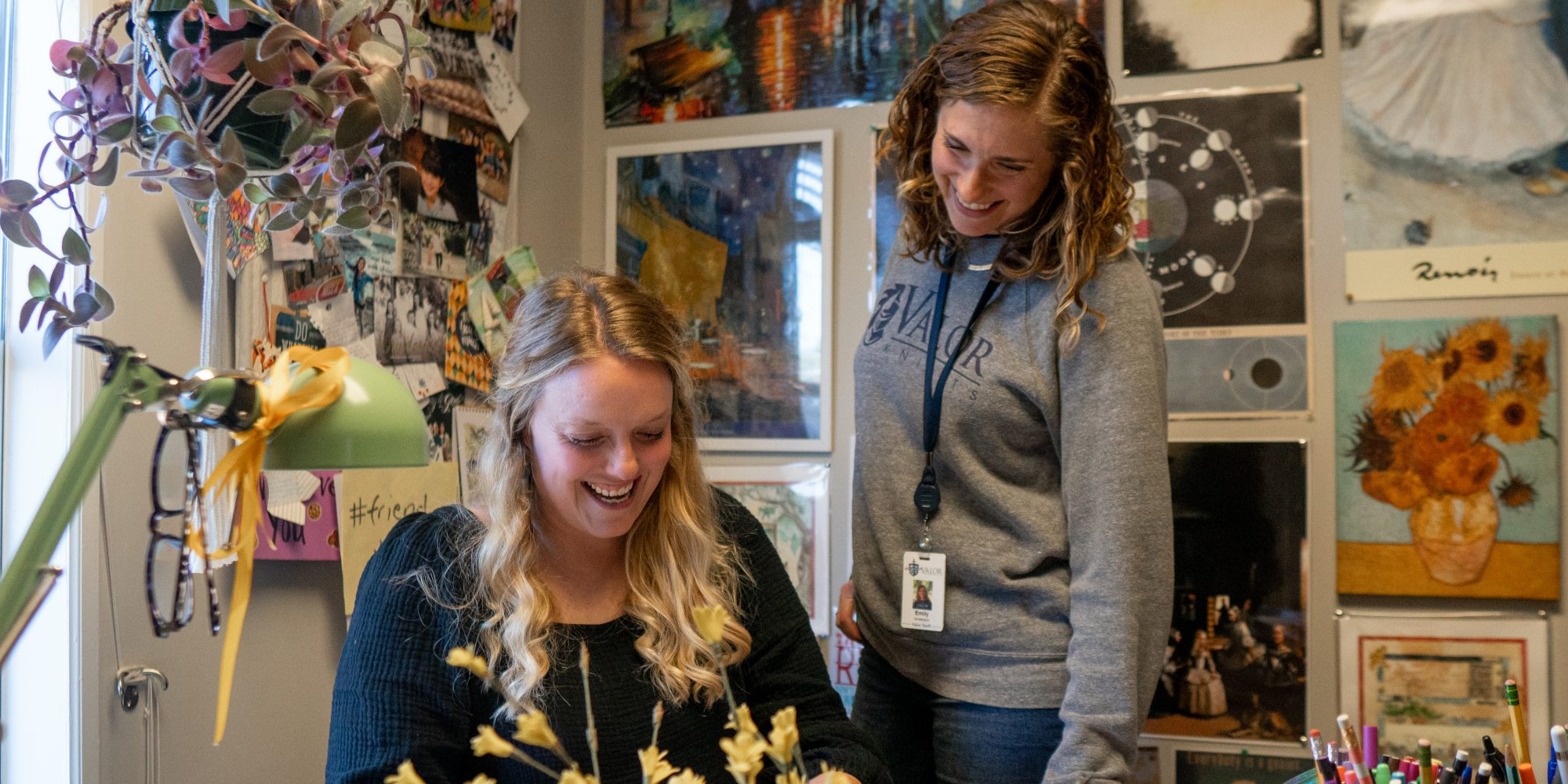Distinctives
Our core distinctives are not merely aspirational qualities; they define the very essence of who we are as a community.

At the core of our educational philosophy is the pursuit of a God-centered life, recognizing the Lord’s presence in all aspects of existence. Our curriculum is deeply rooted in Scripture and a Biblical worldview, presenting God as the unifying source of all knowledge. This perspective informs the teaching of every subject, from history and art to mathematics and science, all illuminated by the divine revelation through Jesus Christ.
Given our creation in God’s image, we are naturally inclined to appreciate His goodness. However, our inherent imperfections and societal influences necessitate a conscious effort to focus on the true, the beautiful, and the good. Daily, we engage our students in the study of noble and uplifting subjects, enriching their imaginations to discern God’s truth, beauty, and goodness in the world.
This quest is intertwined with our aspiration for students to cultivate an authentic relationship with Jesus Christ, becoming conduits of His love. Our faculty remain vigilant for opportunities to guide our students in their lifelong spiritual growth journey, seizing teachable moments throughout each day to foster this relationship.

Classical education, originating from the ancient civilizations of Greece and Rome, has been the cornerstone of Western educational philosophy. Esteemed figures such as Augustine, John Calvin, George Washington, and C.S. Lewis, among others, were beneficiaries of this time-honored educational approach. Classical education serves as an expansive repository of intellectual and cultural treasures, inviting lifelong exploration. Its core principles focus on the pursuit of truth, goodness, and beauty, ideals that find their ultimate expression in the life of Jesus Christ.
Utilizing the Trivium framework, classical education offers an enriching immersion into the history, literature, and culture of Western Civilization. It aims to instill not just knowledge, but also wisdom and biblical virtue. Our educational approach is designed to equip students with the critical thinking skills necessary to discern truth and articulate their views persuasively, rather than prescribing what to think. Through a comprehensive study of the liberal arts and seminal texts, we aspire to cultivate a profound love for learning that extends into all facets of life.

As a distinguished University-Model School®, Valor Preparatory Academy seamlessly combines rigorous academics, active student participation, and the development of Christ-centered character. We embrace parents as the foremost influencers in their children’s lives and aim to extend educational experiences from our campus to the family home. Our unique University-Model Schedule is tailored to suit Grammar, Logic, and Rhetoric School students, progressively guiding them towards age-appropriate autonomy and organizational skills.
Our professional educators, experts in their respective fields, lead the central classroom instruction. Students in our Grammar and Logic School (grades PreK-8) attend on-campus classes three days a week, while those in the Rhetoric School (grades 9-12) are on campus five days a week. On alternate days, education continues at home under parental guidance, supported by comprehensive lesson plans provided by our teachers. While teaching experience is not a prerequisite for parents, a commitment to actively engage and mentor their children is essential. Valor Preparatory Academy offers a full-time educational experience, shared between two campuses: our institution and your home.

Our educational philosophy is deeply influenced by British educator Charlotte Mason, who conceptualized education as comprised of “Atmosphere, Discipline, and Life.” Firstly, we strive to create an enriching, God-centered environment that fosters intellectual and spiritual growth. This is achieved through the daily commitment of both educators and parents to a Christ-centered life and a tranquil approach to learning. Secondly, we emphasize the cultivation of virtuous habits in our students, both in the classroom and at home. This is encapsulated in Mason’s motto: “I am, I can, I ought, I will,” which serves as a constant reminder of our divine identity and earthly duties. Lastly, we offer a comprehensive curriculum that exposes students to distinguished authors, scientific theories, mathematical principles, and various forms of art. This approach enables students to recognize the interconnectedness of all knowledge, ultimately pointing to the singular divine source, as described in Ephesians 4:6: “One God and Father of all, who is over all and through all and in all.”
EPHESIANS 4:6
